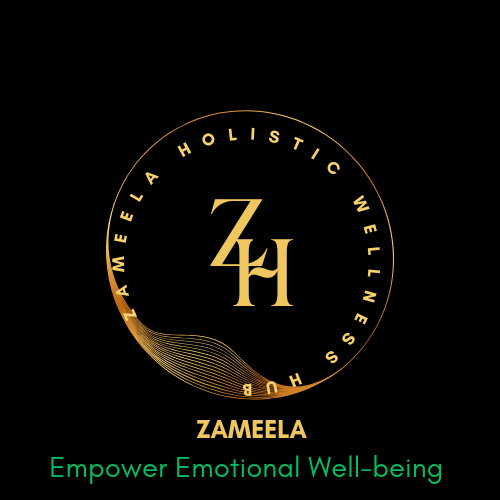The Role of Sleep in Boosting Positive Emotions and Psychological Well-being: Unlock 70% More Happiness with Every Night
Unlock 70% More Happiness! How Sleep Boosts Positive Emotions & Well-being
The Role of Sleep in Boosting Positive Emotions and Psychological Well-being -Introduction:
Unlocking the Power of Sleep for Emotional Well-being
We all know that a good night’s sleep leaves us feeling refreshed and ready to tackle the day. But did you know that sleep can also be a powerful tool for boosting your happiness and overall well-being? Research shows that getting enough quality sleep isn’t just about physical health – it’s crucial for regulating our emotions and maintaining good mental health. In this article, we’ll delve into the surprising connection between sleep and emotional well-being. We’ll explore how sleep quality impacts our ability to manage emotions and how prioritizing sleep can unlock a significant boost in happiness.
The Role of Sleep in Boosting Positive Emotions and Psychological Well-being:

The Science Behind Sleep and Positive Emotions
Ever wonder why a good night’s sleep can leave you feeling sunny side up, while a restless night might have you grumpy the next day? There’s actually a fascinating scientific explanation behind this connection. Sleep plays a vital role in how our brains process and regulate emotions, directly impacting our overall emotional well-being and happiness.
The Sleep-Emotion Connection: A Brain Balancing Act
During sleep, our brains are busy conducting a complex orchestra of activity. One crucial function is emotional processing and regulation. While we slumber, the brain consolidates memories and experiences, including emotional ones. Imagine sleep as a time for your brain to sort through its emotional backpack, filing away positive experiences and tempering negative ones. This allows us to wake up feeling emotionally balanced and ready to tackle the day.
Sleep Quality and the Happiness Boost
The quality of sleep we get significantly impacts how we experience positive emotions. When we get enough restful sleep, our brains are better equipped to recognize and appreciate positive experiences. Studies have shown that people who prioritize quality sleep tend to experience a greater range and intensity of positive emotions, like joy, gratitude, and contentment. Conversely, poor sleep quality can dampen our ability to experience happiness and make us more susceptible to negative feelings.
Unlocking the Reward System: Sleep and Pleasure
Our brains have a built-in reward system that motivates us to seek out positive experiences. This system is heavily influenced by sleep. When we’re well-rested, our brains are more sensitive to the release of pleasure chemicals like dopamine. This translates to a heightened ability to experience enjoyment and satisfaction from everyday activities. On the other hand, sleep deprivation can disrupt this reward system, making us less responsive to positive stimuli and potentially leading to feelings of low mood.
The Role of Sleep in Boosting Positive Emotions and Psychological Well-being:
Did you know that prioritizing sleep is like giving your emotional well-being a daily vitamin? Just like vitamins support your physical health, quality sleep nourishes your emotional resilience. When you prioritize sleep, you’re giving your brain the space it needs to process emotions effectively, regulate your mood, and enhance your ability to experience happiness. So, the next time you’re feeling down, don’t reach for a sugary snack – reach for your pillow! A good night’s sleep might be just the emotional pick-me-up you need to face the day with a smile.
The Role of Sleep in Boosting Positive Emotions and Psychological Well-being:

Strategies for Improving Sleep Quality to Boost Positive Emotions
Ready to unlock the happiness-boosting power of sleep? Here are some practical strategies you can implement to improve your sleep quality and experience a surge of positive emotions:
1. Find Your Sleep Rhythm:
Just like our bodies crave a balanced diet, they also thrive on a consistent sleep schedule. Going to bed and waking up at roughly the same time each day, even on weekends, helps regulate your body’s natural sleep-wake cycle (also known as your circadian rhythm). This consistency signals to your brain when it’s time to wind down and prepare for sleep, leading to deeper, more restful nights. Sticking to a regular sleep schedule promotes emotional stability by helping your body anticipate sleep and wakefulness, which reduces stress and emotional fluctuations.
2. Craft a Sleep Sanctuary:
Your bedroom should be a haven for relaxation and sleep. Create a calming environment by keeping the room cool, dark, and quiet. Invest in blackout curtains to block out light and consider using earplugs or a white noise machine to minimize distractions. Ensure your bed is comfortable and inviting, with supportive pillows and soft bedding. By creating a sleep-conducive environment, you’ll signal to your body that it’s time to unwind and drift off to sleep more easily.
3. Power Down for Sleep:
The hour or two before bed should be a time for relaxation, not stimulation. Avoid watching TV, using electronic devices, or engaging in work-related activities in the lead-up to sleep. The blue light emitted from electronic devices can disrupt your body’s natural production of melatonin, a hormone that regulates sleep. Opt for relaxing activities like reading a book, taking a warm bath, or practicing light stretches. These calming rituals will help quiet your mind and prepare your body for a restful sleep, ultimately contributing to a more positive emotional state throughout the day.
The Role of Sleep in Boosting Positive Emotions and Psychological Well-being:
The Ripple Effect of Positive Emotions on Psychological Well-being
Did you know that happiness isn’t just a fleeting feeling – it’s a powerful force that can positively impact your entire life? Here’s how cultivating positive emotions can create a ripple effect that enhances your overall well-being:
-
Boosted Life Satisfaction: Studies show a clear link between experiencing more positive emotions and feeling greater satisfaction with life. Think of it like this: positive emotions paint the world in brighter colors. When you feel happy, grateful, or content, you’re more likely to appreciate the good things in life, leading to a more fulfilling experience.
- “Happiness is not something you postpone for the future, or something that comes as the result of achieving a specific goal. Happiness is the experience of living fully, consciously, and lovingly in the present moment.” – Thich Nhat Hanh (Vietnamese Buddhist monk)
-
Building Resilience: Positive emotions act like emotional shock absorbers, helping you bounce back from challenges and cope with stress more effectively. When you’re feeling optimistic and hopeful, you’re better equipped to face difficult situations and navigate life’s ups and downs.
- “The positive emotions broaden and build our human capacity to cope with life.” – Barbara Fredrickson (American psychologist)
-
Improved Physical Health: There’s a growing body of research suggesting a connection between positive emotions and improved physical health. Feeling happy can lower blood pressure, strengthen your immune system, and even promote better sleep. So, a positive outlook can literally benefit your entire body!
- “A positive attitude goes a long way toward counteracting the body’s fight-or-flight response, which can wreak havoc on our health.” – Mayo Clinic Staff (American medical institution).
The Role of Sleep in Boosting Positive Emotions and Psychological Well-being:

Overcoming Sleep Challenges for Emotional Well-being
Sometimes, despite our best efforts, getting a good night’s sleep can feel like a constant battle. Here are some tips to navigate sleep challenges and prioritize your emotional well-being:
-
Identify the Root Cause: Many factors can disrupt sleep, including stress, anxiety, and even medical conditions. If you’re struggling to fall asleep or stay asleep regularly, consider what might be keeping you up at night. Keeping a sleep journal can help you identify patterns and potential triggers.
- “The best way to solve a problem is to identify the root cause.” – Peter Drucker (Management consultant)
-
Seek Professional Help: If your sleep problems persist, don’t hesitate to seek professional help. A doctor or therapist can help you identify underlying conditions like sleep apnea or anxiety that might be impacting your sleep. They can also offer personalized strategies and treatments to address your specific needs.
- “Don’t be afraid to reach out for help. A therapist can be a valuable resource for improving your sleep and overall well-being.” – National Sleep Foundation (American non-profit organization)
-
Embrace a Holistic Approach: Remember, sleep is just one piece of the well-being puzzle. Developing healthy habits like regular exercise, a balanced diet, and stress-reduction techniques can all contribute to improved sleep quality and emotional well-being.
- “True wellness is about creating a balance in your life that allows you to be the best version of yourself.” – Unknown
The Role of Sleep in Boosting Positive Emotions and Psychological Well-being:
Conclusion: Prioritizing Sleep for a Happier, Healthier Life
We’ve explored the powerful connection between sleep and emotional well-being. Here’s a final reminder to prioritize sleep and unlock a happier, healthier life:
-
Make Sleep Non-negotiable: Think of sleep as an investment in your emotional and psychological well-being. Just like you wouldn’t skip a workout or a healthy meal, make getting enough quality sleep a non-negotiable part of your routine.
- “Getting enough sleep is not a luxury – it’s a necessity.” – Walter Webb (American sleep researcher)
-
Empower Yourself: You have the power to take control of your sleep! By implementing the strategies discussed in this article, like maintaining a consistent sleep schedule and creating a relaxing sleep environment, you can significantly improve your sleep quality. Remember, even small changes can make a big difference.
- “The best way to predict your future is to create it.” – Abraham Lincoln (16th President of the United States)
-
Celebrate Progress, Embrace Compassion: Remember, improving your sleep is a journey, not a destination. There will be nights when sleep eludes you – that’s perfectly okay! Celebrate your progress, no matter how small, and practice self-compassion on the nights when sleep feels like a challenge.
- “Be kind to yourself. You are a work of art in progress.” – Robert Tew (British mental health advocate)
By prioritizing sleep, you’re not just investing in better nights – you’re investing in a happier, healthier, and more emotionally resilient you. Sweet dreams!
Sweet Dreams Start Here: Share Your Sleep & Happiness Hacks!
Did you find this article helpful? Do you have any tips or tricks that help you sleep better and feel happier? Share your thoughts and experiences in the comments below! We can all learn from each other on the journey to a good night’s sleep and a more positive outlook.
Frequently Asked Questions
How does sleep quality impact the experience of positive emotions?
Studies have shown that getting enough quality sleep is crucial for recognizing and appreciating positive experiences. People who prioritize sleep tend to experience a greater range and intensity of positive emotions like joy, gratitude, and contentment. Poor sleep quality, on the other hand, can dampen our ability to experience happiness and make us more susceptible to negative feelings.
Can improving sleep quality help manage stress and anxiety?
Yes, addressing sleep problems can be an important part of managing stress and anxiety. When we’re well-rested, our brains are better equipped to handle stressful situations. Quality sleep helps regulate emotions, leading to feeling calmer and more able to deal with daily challenges without feeling overwhelmed.
What are some tips for creating a relaxing sleep environment?
To create a sleep-conducive environment, keep your bedroom cool, dark, and quiet. Use blackout curtains or an eye mask to block out light and consider earplugs or a white noise machine to minimize distractions. Ensure your bed is comfortable with supportive pillows and soft bedding.
How can developing a consistent sleep schedule benefit emotional well-being?
Going to bed and waking up at roughly the same time each day, even on weekends, helps regulate your body’s natural sleep-wake cycle. This consistency signals to your brain when it’s time to wind down and prepare for sleep, leading to deeper, more restful nights. Sticking to a regular sleep schedule promotes emotional stability by reducing stress and emotional fluctuations.
When should I seek professional help for sleep problems and mental health concerns?
If you’re struggling with persistent sleep problems or mental health issues like anxiety, don’t hesitate to seek professional help. A doctor or therapist can help identify underlying conditions and develop personalized treatment strategies. Addressing the root causes of sleep issues and mental health concerns can make a significant difference in your overall well-being.
Source Links
- https://www.ncbi.nlm.nih.gov/pmc/articles/PMC6126303/ – The link between sleep quality and emotional regulation
- https://www.sleepfoundation.org/sleep-hygiene – Tips for improving sleep quality and creating a relaxing sleep environment
- https://adaa.org/tips – Strategies for managing stress and anxiety
- https://www.health.harvard.edu/blog/blue-light-has-a-dark-side-2018052313953 – The impact of blue light on sleep quality
- https://www.sleepfoundation.org/circadian-rhythm – The importance of consistent sleep schedules for emotional well-being
- https://adaa.org/finding-help – When to seek professional help for sleep problems and mental health concerns.


